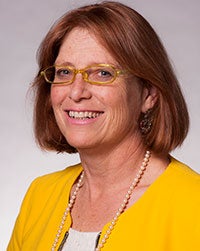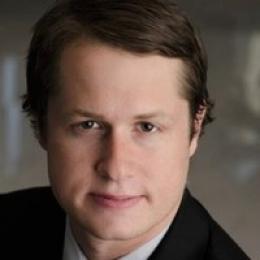
Lori Middlehurst
ASIA PACIFIC EMPLOYMENT LAW DIRECTOR
VMWARE
SYDNEY, AUSTRALIA
Who do you call when disaster strikes? If you are Lori Middlehurst, the Asia Pacific employment law director for VMware, you call your local contacts first to get the on-the-ground scoop. “I’ve had to deal with employee issues related to floods in the Philippines, earthquakes in Japan and New Zealand, fires in Australia, tsunamis, bombings in India, and violent protests in the streets of Bangkok,” says Middlehurst, who adds that she works with the global security team to immediately make sure employees are safe.
She is speaking on a panel at the 2016 ACC Annual Meeting in San Francisco about global crises and employee protection. Middlehurst says the most interesting conversations from a legal perspective occur after everyone is safe and employees need to get back to work. What if the workplace has changed? The Fukushima earthquake and nuclear melt down presented uniquely local considerations.
There were many questions in the immediate aftermath. Among them: What if employees wanted to work in Kyoto (outside the projected nuclear zone) instead of Tokyo? Would we allow or encourage that? What happens to the expats who were working in Japan? Do they go home or stay? The human resources director she was supporting said there was no way employees could work from another location. “It was a true reflection of the essence of what it was to be Japanese,” Middlehurst explains. “In Japan, the cultural imperative is to stay together and help one another.” At other companies, expats who left after the disaster and then returned found their jobs were no longer available.
Globally consistent and locally compliant
Bridging the gap between local operations and headquarters is constantly on her mind. The goal is to support a framework that’s as globally consistent as possible but locally compliant, Middlehurst says. One of her current projects is working with the benefit group to drive more consistent benefits to all VMware employees, rather than just what the employing country requires. If a country’s laws don’t provide LGTBI benefits or paternity leave, how do we introduce them? Is there a value to providing those sorts of benefits when we know that because of country norms uptake may be low? She thinks yes. As a multinational company, she feels it is critical to drive the consistency that engenders loyalty to the company and a common company culture and critical in meeting the company’s diversity and inclusion goals.<
VMware, which is headquartered in Palo Alto, is an enterprise software company that employs nearly 20,000 people around the world. It develops and sells cloud enablement services to businesses to allow them to run their businesses taking advantage of software services and storage, which are cloud-based rather than hardware enabled. VMware’s EPIC2 values (Execution, Passion, Integrity, Customers, Community) permeate the company’s strategies and operations and reflect the company culture.
Middlehurst is licensed as an attorney in California and a solicitor in Australia. She oversees employment related legal issues in Australia, New Zealand, Japan, Thailand, Taiwan, Hong Kong, China, South Korea, Malaysia, India, and Singapore. The company’s largest office outside its Palo Alto headquarters is in Bangalore, India, with about 3500 employees. This broad reach means Middlehurst is always checking for employment updates in the nations she covers. “I’m an absolutely religious reader of Lexology, which ACC distributes,” she says of the daily employment update she receives. Her cohorts in the region also have an active Google group that helps her stay in touch with professional peers and benchmark common issues.

Same same but different
While supporting the region for a variety of tech companies since 2002, Middlehurst has learned many cultural lessons. Above all, it’s that most people are more alike than they are different, and all want to be treated with respect. Yet employment laws are a form of social legislation and create different employee expectations. In particular, North America is different than the majority of the world because it has at-will employment. That’s not the case in Asia Pacific, where employers must show cause. "From a legal perspective in Asia Pacific, we need to make sure that we nail down the reason. To me what that means is I need better documentation, better processes, and I need to be able to feel comfortable that we’re following due process when we get to the point where we part ways with an employee," she says. In general, employees in Asia Pacific expect more warnings before termination and governments expect employees to be given a softer landing. Although countries like South Korea and Japan have moved away from lifetime employment at one company, vestiges of a time when an employee could count on a company for a lifetime of work remain and that informs employee expectations.
Never the favorite part of her job, layoffs are nonetheless a reality of the modern global workplace. They must be carried out in a manner in which treats employees with dignity, and follows local laws. The criteria for a mass layoff in some Asia Pacific jurisdictions are so onerous that from a practical perspective individual negotiations must often take place. In other countries, consultation is required where employees are given an opportunity to suggest options to the company. In some, employees on medical or pregnancy leaves often can’t be terminated at all. These can all come as a surprise to US-headquartered companies and must be considered in the planning. At the 2016 Annual Meeting Middlehurst is also contributing her practical experiences to a panel on global workforce reductions.
There is English, and then there is English
Even employees who have a strong command of the spoken English language may have trouble reading or truly understanding it, especially if the communication is written in corporate jargon. When working across borders, it is imperative to keep communications concise and simple. When Middlehurst first came to the region, she visited a company office where English was a second language, and to try to determine why a particular corporate message wasn’t getting traction. The local human resources manager said to her: "You’ve been sitting in the office for the last day and a half. How much English have you heard?" When she replied, not much, he continued: "That’s the problem. Things get sent out in English. They are too long and complicated and unless someone translates them, they get deleted." If a message is important, it is imperative to translate it to the local language. In order to ensure a good translation, it needs to be simple and clear and jargon free. Sometimes things just don’t translate — she once had to resolve a complaint that was caused by an American manager causing distress to his female subordinate by regularly using the term "period" to end a sentence instead of "full stop."
From pre-med to international lawyer
Middlehurst, the daughter of two doctors, grew up in Pasadena, California. She enjoyed the typical Southern Californian upbringing (meaning she spent a lot of time outside riding bikes and playing sports). She earned a degree in biology from University of California — San Diego, while playing intercollegiate water polo and field hockey.
One day, she was studying in the library and wondering if the pre-destined medical school was the right choice, she happened to be sitting next to a friend who was studying for the LSAT and she thought that might be an interesting alternative. She talked to a counselor at UCSD, who happened to have a law degree and biology degree, and confirmed that law was a viable option. Her parents were surprised, but ultimately supportive.
Having no lawyers in the family, she started law school with no idea what a tort was or why one needed civil procedure. She initially thought she would study environmental law to marry the biology degree with the law degree. When she took an employment law class in her second year at UC Davis School of Law, however, she was hooked and she has specialized in labor and employment law her entire career.
She learned clear concise writing, advocacy, and client counseling as an employment law litigator at Baker McKenzie in San Diego. She also had a chance to participate in an 18-month training program in their Sydney office, where on her first day in the office she met her future husband, also a lawyer. It was the start of a lifetime of cross-pacific flights as they have family on two continents. They married in Sydney and lived first in San Diego and then in Palo Alto when he was offered an in-house position in the tech sector.
While juggling three children under four (including twin boys) with a startup-focused sole practice, she decided she needed to get out of her house and work in-house. She landed a job with Sun Microsystems and it was the perfect fit. She lived within walking distance of the office, and had a manager who modeled flexibility by being transparent about his own childcare duties. She loved being able to see the results of her advice and working with the business. Over time, she moved from a purely US practice to handling Latin American and Canadian employment matters for the company, dealing with issues such as how to pay employees in the face of massive currency devaluation. When her husband was transferred to Sydney, she requested a move to the Asia Pacific region and the ability to work from home — in Sydney. Her boss agreed. She would start her workday at 4:30 am so she was available to talk to colleagues and clients in corporate headquarters. "There were people in the United States who had no idea I wasn’t in the country," she says. "They would occasionally invite me to meetings and I would have to say, ‘No, I don’t think I can make it, I work from Australia.’" She says the flexible arrangement worked because she was committed and flexible with her time, the technology was good, and her clients could trust that she would always get back to them.
Middlehurst is admitted as an Australian solicitor and has had several regional roles in both legal and HR at a number of multinational companies. She joined VMware in June 2013. She enjoys the constant challenges and surprises of the cross-jurisdictional work and can’t imagine ever returning to being a lawyer working with just one country’s laws.
Getting to know Lori Middlehurst
AS A LONGTIME SWIMMER, WHAT IS THE COOLEST PLACE YOU HAVE EVER SWAM?
I really liked doing the Maui Channel Swim relay [a nearly 10-mile relay swim between the Hawaiian Islands of Lanai and Maui]. It was scary. When we got into the water in the middle of the deep shipping channel, the water is very, very clear and then it gets very, very dark. The trade winds came up as we swam. After we crested the waves, we would lose the support boat. It really felt like I was alone out in the middle of the ocean, which of course, I was.
On the other hand, in the Lake Argyle swim (a 20k relay in the largest lake in the Southern hemisphere in Western Australia’s far north) the water was flat and bathtub warm, but there were (supposedly) harmless freshwater crocodiles. But, you know, I swim at a beach called Balmoral in the Sydney Harbor most mornings, and it’s the most beautiful place to swim.
WOULD YOU SAY THAT’S YOUR FAVORITE THING ABOUT LIVING IN SYDNEY?
Swimming is probably one of my favorite things, but I play field hockey and do a lot of bushwalking as well. What I like about Sydney is that it’s an exciting international city that’s got a great vibe. There’s a lot going on all the time and some great festivals. It’s a physically beautiful city and I love the combination of that with the attitude of the people. People work hard and they play hard, and everyone is always ready to “have a go.”




